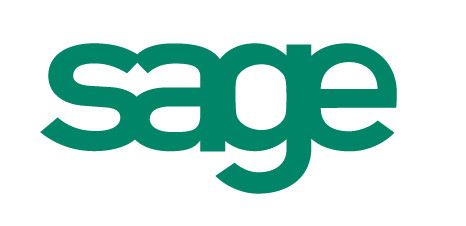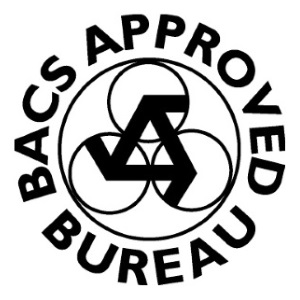Directors’ duties during financial distress
When a company faces financial distress, directors have a crucial role in ensuring that their actions align with legal obligations while working towards a viable solution. Failing to meet these responsibilities can lead to serious consequences, including personal liability, fines, or even disqualification.
Understanding directors’ duties during financial distress is vital to protecting both the company and individual directors from legal repercussions. At BV Corporate Recovery & Insolvency Services Ltd, we provide expert guidance to directors navigating financial difficulties, helping them fulfil their responsibilities while exploring the best recovery options.
Key Duties of Directors in Financial Distress
Directors of a company in financial difficulty must balance the interests of shareholders, creditors, and other stakeholders. Under the Companies Act 2006, directors have general duties, but when a company approaches insolvency, their primary duty shifts to creditors’ interests.
1. Duty to Act in the Best Interests of Creditors
When a company is insolvent or on the brink of insolvency, directors must prioritise the interests of creditors over shareholders. This means ensuring that company assets are not misused and that all actions taken are in the best interests of those owed money.
2. Duty to Avoid Wrongful Trading
Under the Insolvency Act 1986, wrongful trading occurs when directors continue operating the business while knowing (or should have known) that insolvency is inevitable, without taking reasonable steps to minimise losses to creditors. If found guilty, directors can be held personally liable for company debts.
3. Duty to Avoid Fraudulent Trading
Fraudulent trading is a criminal offence and occurs when a company incurs debts with no genuine intention to repay them. Unlike wrongful trading, fraudulent trading requires proof of intent to defraud creditors, which can result in severe penalties, including criminal prosecution.
4. Duty to Maintain Proper Financial Records
Directors must ensure that the company keeps accurate financial records. Failing to do so can lead to legal consequences and difficulties in demonstrating that reasonable efforts were made to mitigate insolvency risks.
5. Duty to Act with Reasonable Skill and Care
Directors are expected to act diligently and with the care that a reasonably competent businessperson would apply in similar circumstances. Failing to seek professional advice or ignoring warning signs of insolvency can be considered a breach of this duty.
6. Duty to Consider Alternative Options
When facing financial distress, directors should explore all potential options, including restructuring, refinancing, or formal insolvency processes such as a Company Voluntary Arrangement (CVA) or Administration. Seeking early professional advice is critical in determining the best course of action.
Signs That a Business May Be Insolvent
Directors should be vigilant for the following signs of financial distress:
- Cash Flow Issues – Struggling to meet payroll, rent, or supplier payments.
- Mounting Debts – Inability to service loans or pay off creditors.
- Legal Actions – Receiving statutory demands, winding-up petitions, or CCJs.
- Declining Sales – Consistent revenue downturn affecting operational sustainability.
- Creditor Pressure – Demands for immediate payment or refusal to extend credit terms.
If any of these warning signs appear, immediate action should be taken to assess the company’s financial position and explore available solutions.
How to Fulfil Directors’ Duties During Financial Distress
1. Seek Professional Advice Early
Engaging insolvency experts, like BV Corporate Recovery & Insolvency Services Ltd, at an early stage can help directors explore viable solutions, such as restructuring or negotiating with creditors, before matters escalate.
2. Keep Clear and Transparent Records
Maintaining up-to-date financial records and documenting all board decisions ensures transparency and can serve as evidence that directors acted responsibly in a crisis.
3. Hold Regular Board Meetings
Frequent board meetings allow directors to assess financial performance, discuss potential solutions, and make informed decisions that align with their legal duties.
4. Communicate With Creditors
Engaging openly with creditors and suppliers can sometimes lead to agreements on revised payment terms or debt restructuring, preventing further escalation.
5. Consider Formal Insolvency Options
If the company cannot continue trading solvently, directors should consider formal insolvency solutions such as:
- Company Voluntary Arrangement (CVA) – An agreement to repay debts over time while continuing operations.
- Administration – A process that protects the company from creditor action while seeking restructuring or sale options.
- Creditors’ Voluntary Liquidation (CVL) – A controlled process to close the company and settle outstanding debts.
Consequences of Failing to Fulfil Directors’ Duties
Directors who neglect their legal responsibilities during financial distress risk serious consequences, including:
- Personal liability for company debts due to wrongful trading.
- Disqualification as a director for up to 15 years.
- Legal action from creditors for failing to prioritise their interests.
- Criminal prosecution in cases of fraudulent trading.
To avoid these risks, directors must act prudently, seek expert advice, and document all decisions made in the company’s best interests.
How BV Corporate Recovery & Insolvency Services Ltd Can Help
At BV Corporate Recovery & Insolvency Services Ltd, we specialise in supporting directors through financial distress. Our expert team provides guidance on fulfilling legal duties, restructuring options, and formal insolvency processes to ensure the best possible outcome for both the company and its creditors.
If your business is facing financial difficulties, don’t delay. Contact us today for a confidential consultation and expert advice on the next steps.












